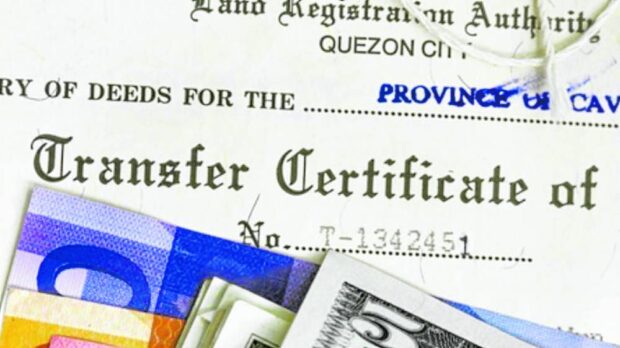How to make sure their inheritance is inherited
During our lifetime, we accumulate properties—personal or real—that we want to pass on to our heirs. But we also hope that relationships are not ruined by inheritance disputes and we want to ease the burden of additional and excess fees. So, how do we secure our heirs’ inheritance?
Before anything else, we need to understand what an estate is. The estate covers the sum of all real (land and permanent structures) and personal (vehicle, jewelry, art collections, stocks, bank deposits, etc.) properties, less the liabilities/obligations of the deceased person.
At the moment of death, rights to the properties of the deceased (decedent) are immediately transferred to the heirs, but the legal transfer of ownership is actually not automatic and simple. The heirs must go through a rigorous process before they can claim ownership of the properties. This is why it is quite common for Filipinos to avoid the settlement of the estate of their loved ones.
In fact, several titles of real estate properties remain in the names of deceased individuals, resulting in mountains of unpaid estate taxes. The Philippine Government has extended again the deadline for application for estate tax amnesty until June 14, 2025 to remedy the situation.
How do you make sure that properties are inherited by your heirs? Here are the steps in transferring real estate properties through succession:
STEP 1 – Check if the decedent left a will
Filipinos are not in the habit of preparing wills even though the document will actually minimize conflicts among heirs later.
There are two types of wills: notarial and holographic. A notarial will follow a certain format to be valid. It should be signed on all pages by the testator (the person who executes the will to dispose of his/her property) and witnesses. It must be acknowledged before a notary public by the testator and witnesses.
A holographic will, on the other hand, should be signed, dated, and written entirely by the testator’s hand. Witnesses (who must be familiar with the testator’s handwriting and signature) are only needed in court to establish the validity of the will.
If there is a will, the heirs will go through a judicial settlement of the estate. A probate court will determine the will’s validity, then the executor appointed by the decedent in the will (if none, the court will appoint an administrator) will attend to the implementation of the will’s provisions and the general administration of the estate.
A judicial settlement is also applicable if there is no will and there is a dispute among heirs on how to divide the estate.
If there is no will, the heirs will go through an extrajudicial settlement of estate. The deed of extrajudicial settlement will be executed if the surviving heirs (heirs with the absolute right to inherit from the deceased person) agree on the division/distribution of the estate.
The deed of extrajudicial settlement should state the following: that the decedent left no will; that the decedent left no debt; each heir’s relationship to the decedent, including whether the relationship is legitimate or illegitimate; that the indicated heirs are the decedent’s only surviving heirs; list and description of the estate to be divided among the heirs; and how the properties are to be distributed among the heirs.
If there is only one heir, he/she only has to execute a deed of self-adjudication instead of a deed of extrajudicial settlement.
STEP 2 – Assessment and payment of estate and transfer taxes
Go to the Bureau of Internal Revenue (BIR) Revenue District Office (RDO) and the Assessor’s Office that has jurisdiction over the property and ask for a certificate of zonal value (BIR) and fair market value (Assessor’s Office) at the time of death. Submit the required documents and pay the estate tax and the transfer tax.
Under the TRAIN law, the estate tax is now at a uniform rate of 6 percent of the net estate (total value of the estate less the ordinary and special deductions) while the documentary stamps tax stays at 1.5 percent of the net estate.

Under the TRAIN law, the estate tax is now at a uniform rate of 6 percent of the net estate while the documentary stamps tax stays at 1.5 percent of the net estate.
This should be settled within one year from the date of death of the decedent at an authorized agent bank of the BIR RDO that has jurisdiction over the decedent’s last place of residence. When everything is cleared by BIR, an electronic certificate authorizing registration (e-CAR) shall be issued to the heir/s.
The transfer tax (which ranges from 0.5 percent to 0.75 percent, depending on the location of the property) should be settled at the Treasurer’s Office of the local government unit where the property is located.
STEP 3 – Transfer of Title and Tax Declaration in the name of the heirs
Pay the corresponding registration fees at the Registry of Deeds (RD) that has jurisdiction over the property. Then submit all required documents for the RD to process the title transfer to the heirs.
When the new title under the name of the heir/s is released by the RD, the final step is to process the transfer of the tax declaration under the name of the heir/s. This is done at the Assessor’s Office.
To minimize disputes and avoid additional fees and penalties, do your research and ask professionals to help you make sure your designated heirs inherit your properties.
For the heirs, if they have to sell the property to cover the estate tax and other expenses, or if there are any other issues, there are ways to go about it. Employing professional consultants, like Leechiu Property Consultants, is advisable.
The author is the Director of the Residential Brokerage Team at Leechiu Property Consultants, Inc.



